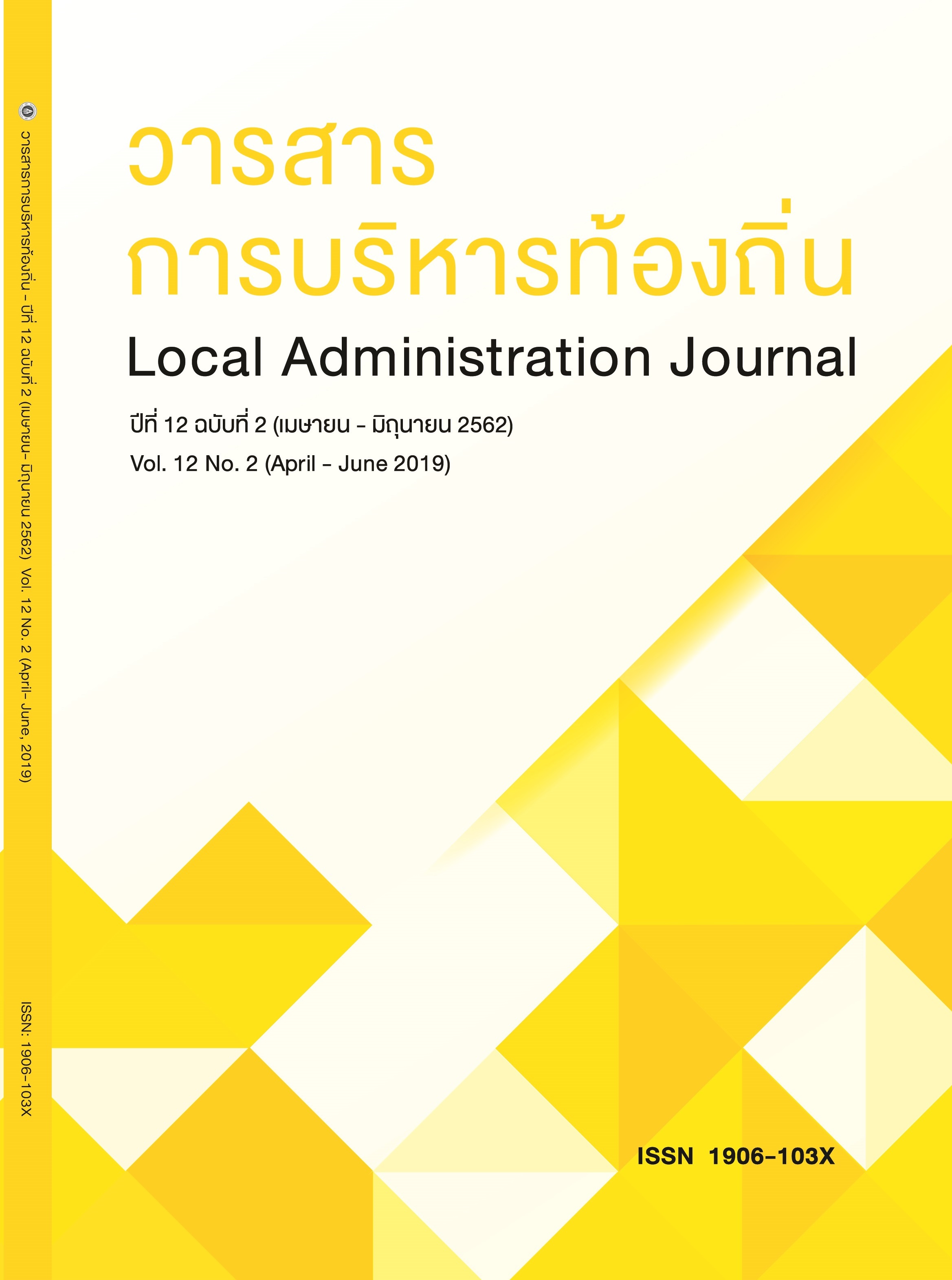An Analysis of Thai Education Crisis Based on Karl Marx’s Theory
Keywords:
Thai education, Karl Marx, economics, political, capitalismAbstract
Thai education crisis is related to capitalism as argued by Karl Marx. Thai education system, as a result, is controlled by discourses and power of the elites similar to means of production being owned the ruling class in a capitalist system. According to the Marxist political economic point of view, education and political economy are directly interconnected. If the ruling class assumes that they are the patrons of society, exploit the capitalist labor structure, capitalize on their inherited feudal wealth, and preserve their status quo by concealing the truth, the state-sponsored education system is rather a mechanism for political control and manipulation. Under this circumstance, Thai education crisis has manifested in multiple ways: citizens lack learning and problem-solving capacity, disdain and oppose ideological diversity, and have contradictory assumptions on morality. Therefore, the relationship between political and education crises in Thailand is inseparable: the persistent feudalistic norms and exploitive capitalist economic structure have facilitated the ruling class’s use of education system to control and manipulate the Thai citizens.
References
ฉัตรทิพย์ นาถสุภา. (2541). ลัทธิเศรษฐกิจการเมือง (พิมพ์ครั้งที่ 4). กรุงเทพฯ: สำนักพิมพ์จุฬาลงกรณ์มหาวิทยาลัย.
ชลลดา นาคใหญ่. (2557). ทุนนิยม: ปัญหาความไม่เสมอภาคและวิถีแห่งการกดขี่ขูดรีด. วารสารสมาคมปรัชญาและศาสนาแห่งประเทศไทย, 10(1), 84-112.
ดำรง ตุ้มทอง. (2557). ปัญหาเด็กด้อยโอกาสทางการศึกษา: สถานการณ์ความไม่เสมอภาคทางสังคมไทย. วารสารวิชาการคณะมนุษยศาสตร์และสังคมศาสตร์, 10(1), 123-144.
ปรีชา เปี่ยมพงศ์สานต์. (2557). เศรษฐศาสตร์การเมืองและทฤษฎีสังคมวิพากษ์. ขอนแก่น: สาขาวิชารัฐประศาสนศาสตร์ คณะมนุษยศาสตร์และสังคมศาสตร์ มหาวิทยาลัยขอนแก่น.
พจนา วลัย. (2556). Alienation: การสร้างสภาวะแปลกแยกโดยระบบทุนนิยม (ตอนที่ 2). สืบค้นเมื่อ 20 มิถุนายน 2561, จาก https://prachatai.com/journal/2013/03/45551.
รัชวดี แสงมหะหมัด. (2560). ความเหลื่อมล้ำทางการศึกษา: คุณภาพสังคมที่คนไทยมองเห็น. วารสารรัฐศาสตร์และรัฐประศาสนศาสตร์, 8(1), 33-66.
วัชรพล พุทธรักษา. (2561). อันโตนิโอ กรัมชี่กับการจัดวางความคิดทางการเมือง: ปรัชญาปฏิบัติ การเปลี่ยนแปลงทางสังคม และการปลดปล่อยมนุษย์. กรุงเทพฯ: สมมติ.
วิทย์ วิศทเวทย์. (2526). ปรัชญาการศึกษาไทย 2411 – 2475. กรุงเทพฯ: ฟันนี่พับลิซซิ่ง.
วิทยากร เชียงกูร. (2558). ทำไมควรอ่านคาร์ล มาร์กซ์: Karl Marx. กรุงเทพฯ: แสงดาว.
เอกศักดิ์ ยุกตะนันทน์.(2557). ปรัชญาการศึกษาไทย: บทวิเคราะห์วิกฤตการณ์ทางการศึกษาภายใต้ชัยชนะของฝ่ายอนุรักษ์นิยม. ขอนแก่น: คณะมนุษยศาสตร์และสังคมศาสตร์ มหาวิทยาลัยขอนแก่น.
เอกศักดิ์ ยุกตะนันทน์. (2560). ปรัชญาและความสำนึกรู้ต่อวิกฤตการณ์ทางการศึกษาไทยและวิกฤตการณ์ทางการเมืองไทย. วารสารสหวิทยาการ มหาวิทยาลัยธรรมศาสตร์, 14(2), 154-224.
แมนเดล เออร์เนสต์. (2559). เศรษฐศาสตร์การเมืองเบื้องต้น (กนกศักดิ์ แก้วเทพ แปล). กรุงเทพฯ: สยามปริทัศน์.
Cohen, G.A. (1987). Karl Marx's theory of history: a defence. Oxford: Oxford University Press.
Laycock, H. (1999). Exploitation via labour power in Marx. The Journal of ethics, 3(2), 121-131.
Marx, K., & Engels, F. (1970). The German Ideology Part 1 with Selections from Parts 2 and 3: Together with Marx's Introduction to a Critique of Political Economy. London: Lawrence & Wishart.
Ratner, C. (2014). False consciousness. In Encyclopedia of Critical Psychology (pp. 673-685). Springer: New York
Translated Thai References
Chiangkun, W. (2015). Why should read Karl Marx: Karl Marx. Bangkok: Saeng Dao.
Buddharaksa, W. (2018). Gramsci and Political Installation: Philosophy of Praxis, Social Tranformation, and Human Emancipation. Bangkok: Sommadhi. (In Thai)
Mandel, E. (2016). Introduction to Political Economics (Kanoksak Kaewthep, translator). Bangkok: Siam Paritus. (In Thai)
Nakyai Ch. (2014). Capitalism: Problems of Inequality and the Way of Exploitation. Journal of The Philosophy and Religion Society of Thailand, 10(1), 84 - 112. (In Thai)
Nartsupha, Ch. (1998). Political economy doctrine (4th edition). Bangkok: Chulalongkorn University Press. (In Thai)
Piampongsan, P. (2014). Political Economics and Social Theory of Criticism. Khon Kaen: Department of Public Administration, Faculty of Humanities and Social Sciences, Khon Kaen University. (In Thai)
Sangmahamad, R. (2017). Disparities in Education: Social Quality in Thai’s Views. Political Science and Public Administration Journal, 8(1), 33-66. (In Thai)
Tumthong, D. (2014). Problem of underprivileged children in education: situation of inequality in Thailand. Journal of Humanities and Social Sciences, 10(1), 123-144. (In Thai)
Walai, P. (2013). Alienation: Creating Alienation by capitalism (Part 2). Retrieved May 3, 2018, from https://prachatai.com/journal/2013/03/45551. (In Thai)
Wisthawat, W. (1983). Thai educational philosophy 2411 - 2475. Bangkok: Funny folding leasing. (In Thai)
Yooktanan, E. (2017). Philosophy and the Consciousness of Thai Education and Political Crises. Journal of Integrated Sciences, 14(2), 154 - 224. (In Thai)
_________. (2014). Thai education philosophy: an analysis of educational crises under the victory of the Conservatives. Khon Kaen: Faculty of Humanities and Social Sciences, Khon Kaen University. (In Thai)
Downloads
Published
How to Cite
Issue
Section
License
The copyright of all articles published in the Local Administration Journalis owned by the College of Local Administration, Khon Kaen University.



